
What is lessor and lessee Rent Agreement and Important Points to consider
A lease agreement is a crucial document that protects the interests of both parties and ensures that the rental transaction goes smoothly.
In India, a lease agreement is a legal document that outlines the terms and conditions between a lessor and a lessee for the rental of a property. A lease agreement is a crucial document that protects the interests of both parties and ensures that the rental transaction goes smoothly.
What is a Lessor?
A lessor is a person who owns a property and is renting it out to someone else. The lessor can be an individual or a company that owns the property. The lessor is responsible for maintaining the property, paying property taxes, and ensuring that the property is habitable for the lessee.
What is a Lessee?
A lessee is a person who is renting a property from the lessor. The lessee can be an individual or a company that is renting the property for commercial or residential purposes. The lessee is responsible for paying rent on time, maintaining the property, and following the terms and conditions outlined in the lease agreement.
What is a Lease Agreement?
A lease agreement is a legal document that outlines the terms and conditions between the lessor and the lessee for the rental of a property. The lease agreement includes details such as the rental amount, security deposit, duration of the lease, renewal options, and other terms and conditions. Both parties must sign the lease agreement to make it legally binding.
Key Terms in a Lease Agreement
Here are some of the key terms that you should look for in a lease agreement:
-
Rent: This is the amount that the lessee has to pay to the lessor for the rental of the property. The rent can be fixed or variable, depending on the terms of the lease agreement.
-
Security Deposit: This is the amount that the lessee has to pay as a security deposit to the lessor. The security deposit is usually refundable at the end of the lease period, provided that the lessee has fulfilled all the terms and conditions of the lease agreement.
-
Maintenance: This term outlines the responsibilities of both the lessor and the lessee for the maintenance of the property. The lessor is responsible for major repairs, while the lessee is responsible for minor repairs and maintenance.
-
Termination: This term outlines the conditions under which the lease agreement can be terminated by either party. The termination clause should also include details on the notice period required by both parties.
-
Renewal: This term outlines the conditions under which the lease agreement can be renewed by both parties. The renewal clause should also include details on the notice period required by both parties.
Indian Laws Governing Lease Agreements
In India, lease agreements are governed by the Transfer of Property Act, 1882, and the Indian Contract Act, 1872. The lease agreement should be prepared in accordance with these acts to ensure that it is legally binding.
Tags
General Legal Hashtags
- #PhenixBayLegal
- #LegalAdviceIndia
- #IndianLawUpdates
- #LegalServicesIndia
- #LegalBlogsIndia
Regional Hashtags (Geographical Coverage)
- #NorthIndiaLegalUpdates
- #SouthIndiaLegalAdvice
- #EastIndiaLawServices
- #WestIndiaLegalResources
- #NortheastIndiaLaw
City-Specific Hashtags
- #DelhiLegalServices
- #MumbaiLawUpdates
- #BangaloreLawAdvice
- #ChennaiLegalHelp
- #KolkataLegalConsultation
- #HyderabadLawyers
- #PuneLegalTips
- #AhmedabadLegalServices
- #LucknowLawConsultation
- #ChandigarhLegalAdvice
Broader Indian Legal System Hashtags
- #IndianLegalSystem
- #IndianCourtUpdates
- #LegalAwarenessIndia
- #LawInIndia
- #LegalRightsIndia
- #LawFirmIndia
- #LegalSupportIndia
- #LegalUpdatesIndia
- #LegalAwarenessCampaign
More >>

Jyoti Sharma vs. Vishnu Goyal & Anr. 2025 INSC 1099
This was a long running legal battle between a landlord and her tenants over a shop. The landlord, Jyoti Sharma, wanted her shop back for two main reasons: The tenants had stopped paying rent. She needed the shop to expand her family's business (her bonafide need).
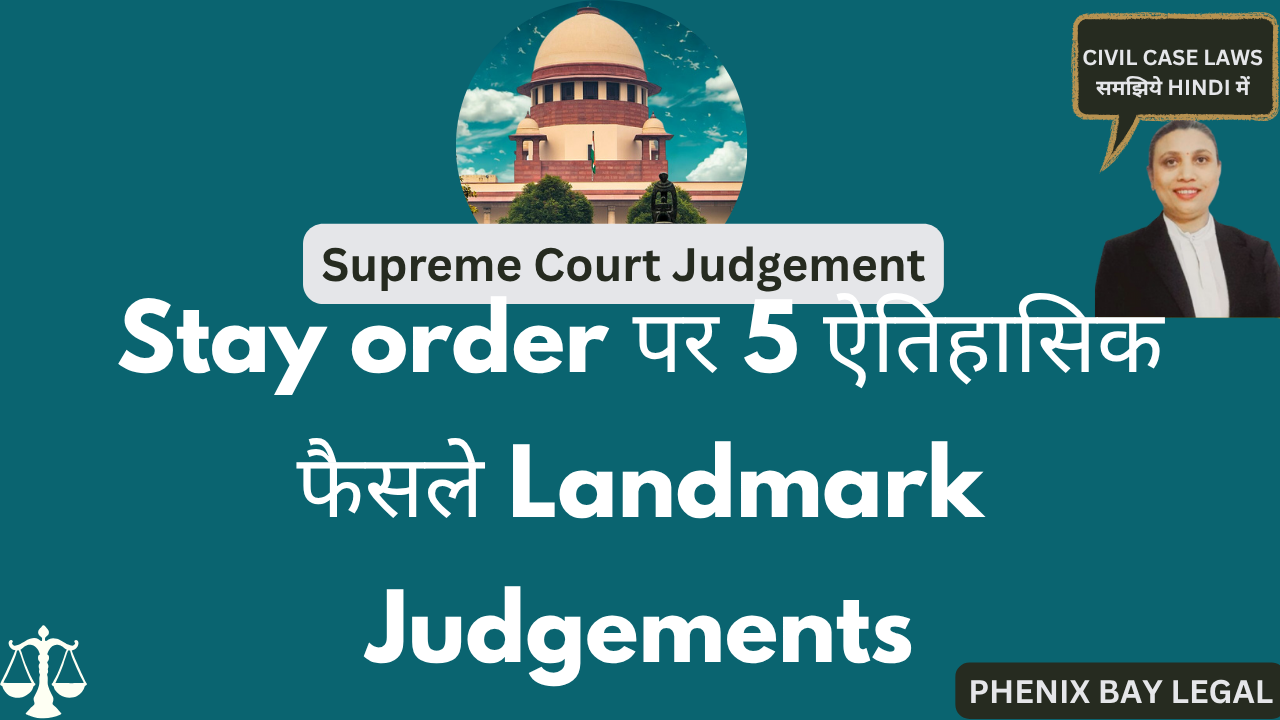
Landmark Judgement on Injunction
In civil, commercial, or even family disputes. But when is a simple injunction suit enough? When do you need to add a declaration of title? And how do courts balance urgency vs evidence in interim relief?
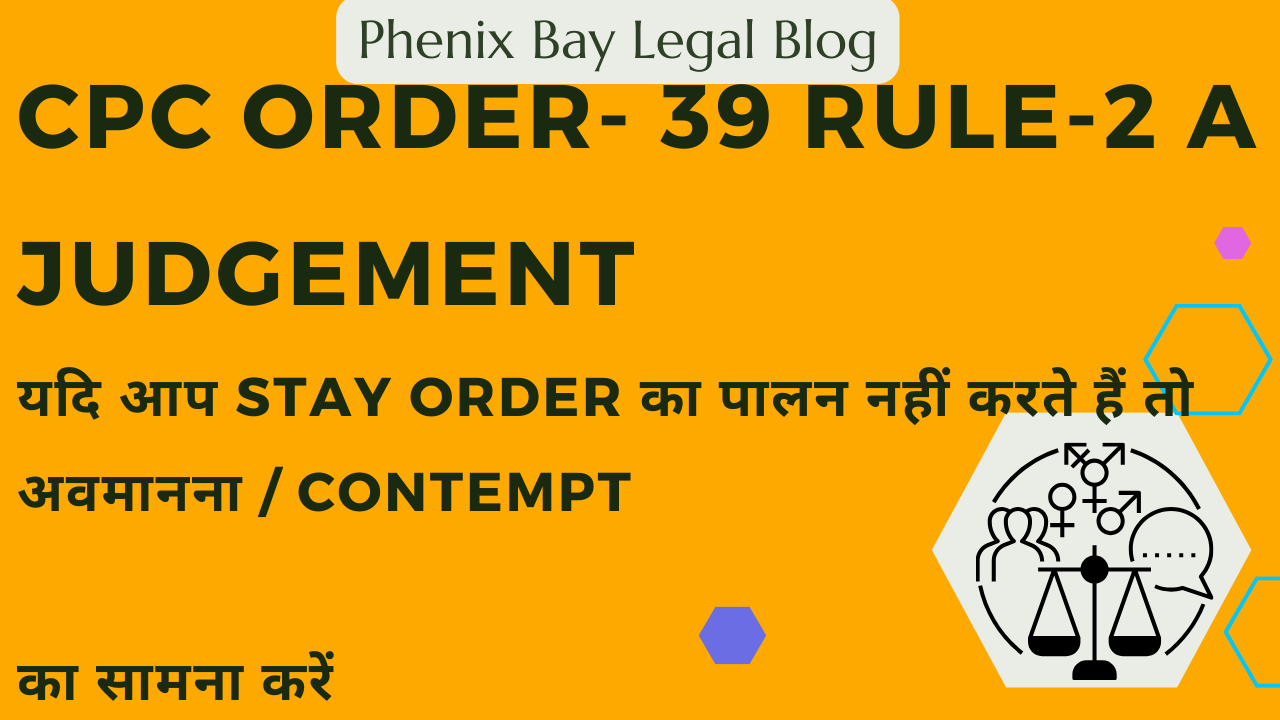
Case Analysis: Stay Order Violation and Contempt of Court by Supreme Court of India
Giving an undertaking to the court is equivalent to an order of injunction—any violation invites contempt proceedings.Injunction orders remain valid until formally vacated by a court—violation before vacation can lead to punishment.
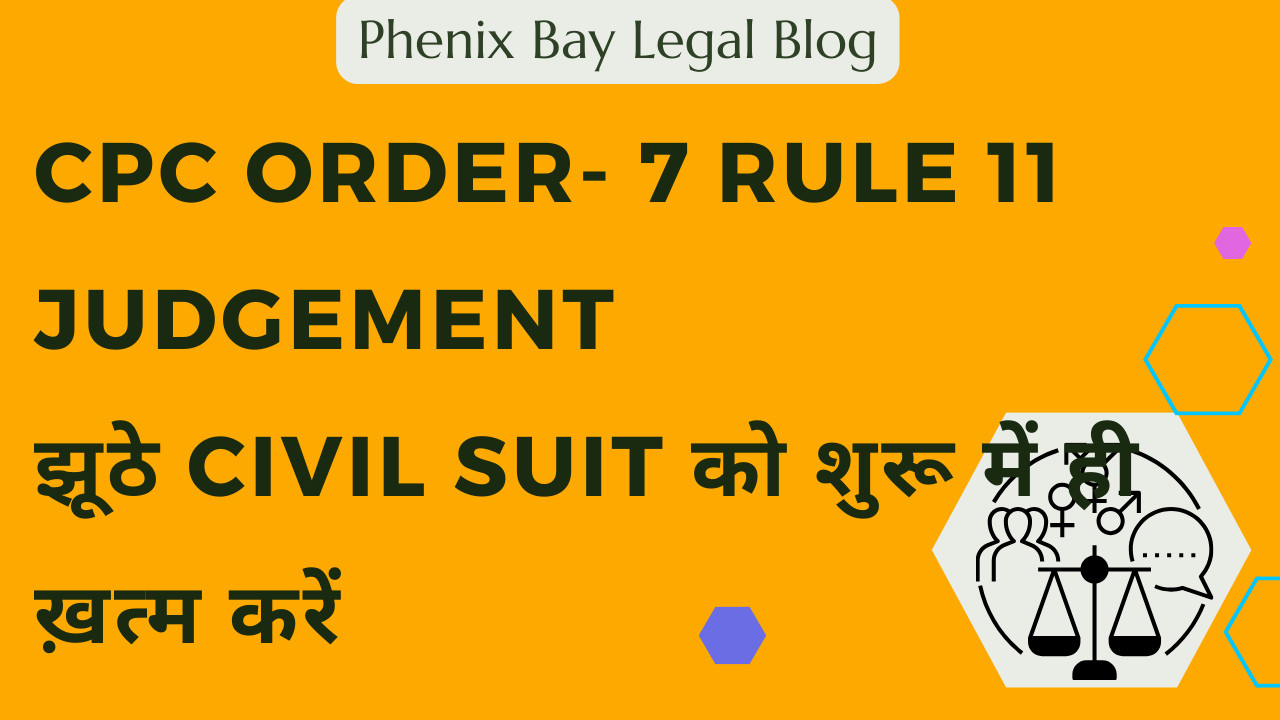
Order 7 Rule 11 of CPC Explanation in Land Mark Judgement
The Sopan Sukhdeo Sable judgment is a landmark ruling that reinforces Order 7 Rule 11 of CPC as a safeguard against frivolous and legally untenable claims. It highlights the importance of examining only the plaint’s contents to decide whether a suit should be dismissed at the threshold.
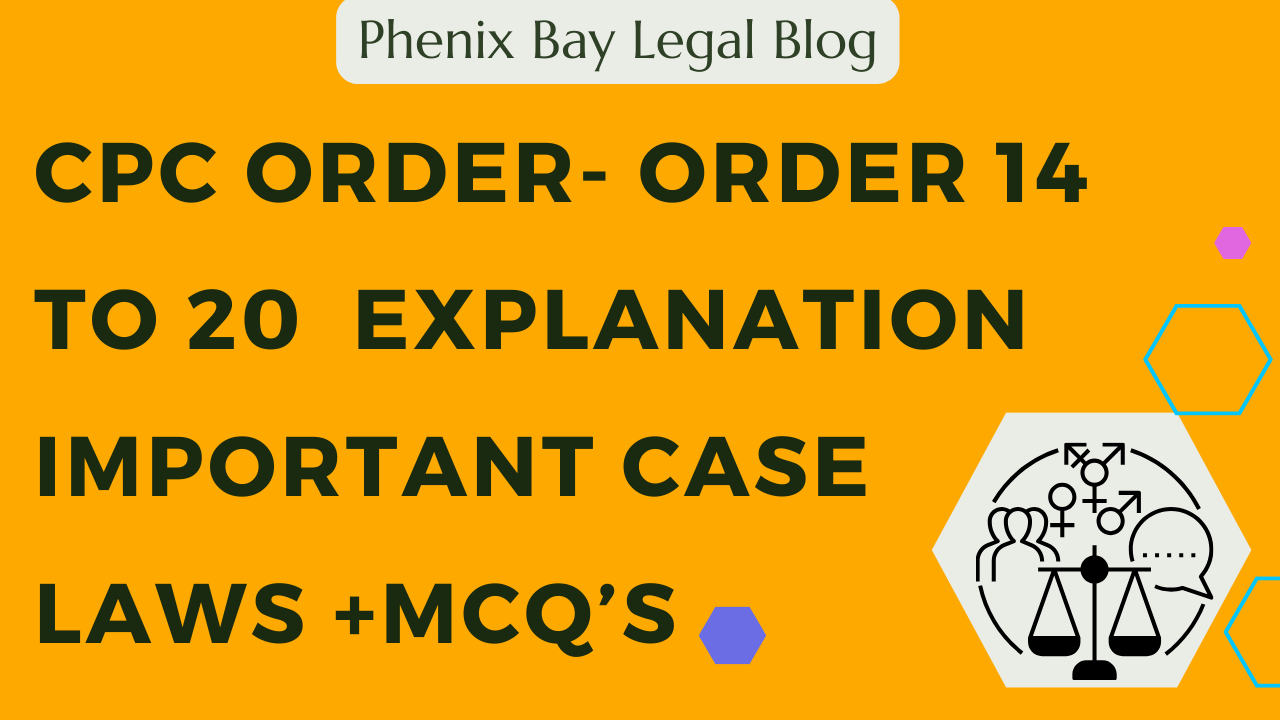
CPC Order- Order 14 to 20 Explanation IMPORTANT CASE LAWS +MCQ’S for Judiciary Exam Preparation
CPC Order- Order 14 to 20 Explanation IMPORTANT CASE LAWS +MCQ’S for Judiciary Exam Preparation
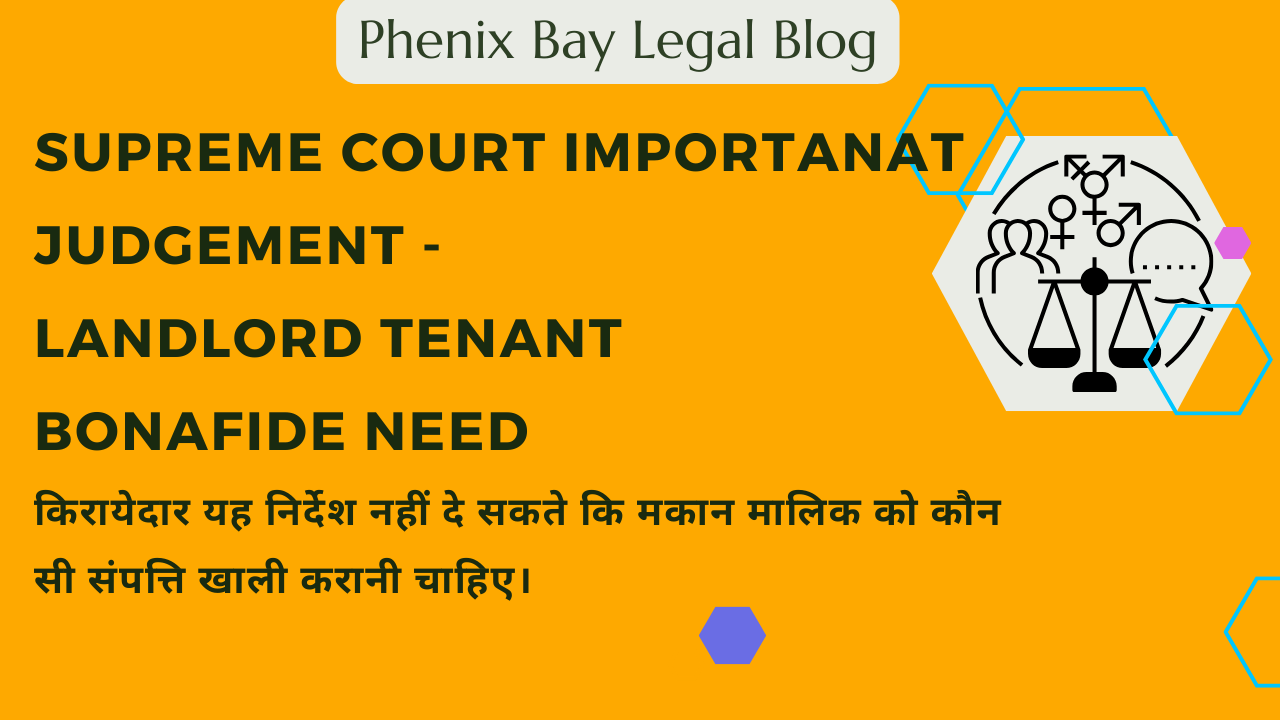
Supreme Court ImportanatJudgement - Landlord Tenant Bonafide need
This case involves a dispute over eviction of a tenant based on the bona fide need of the landlord. The Supreme Court ruled in favor of the landlord, reversing the High Court's decision. Below is a detailed breakdown of the judgment with relevant legal principles, precedents, and reasoning.